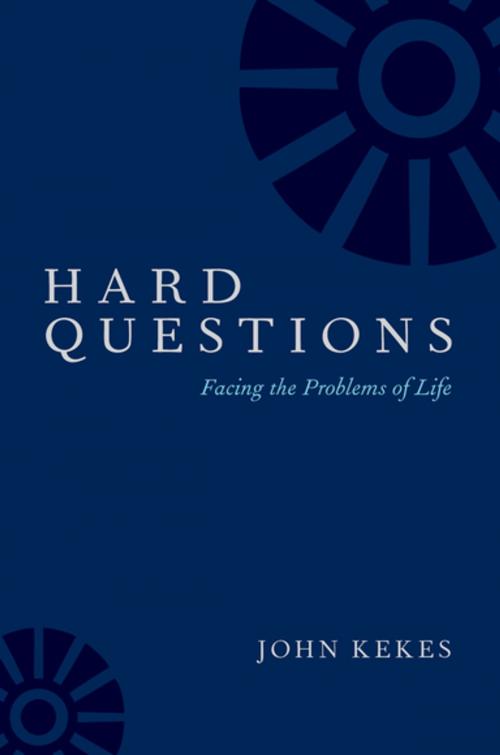Hard Questions
Facing the Problems of Life
Nonfiction, Religion & Spirituality, Philosophy, Good & Evil, Ethics & Moral Philosophy| Author: | John Kekes | ISBN: | 9780190920005 |
| Publisher: | Oxford University Press | Publication: | January 15, 2019 |
| Imprint: | Oxford University Press | Language: | English |
| Author: | John Kekes |
| ISBN: | 9780190920005 |
| Publisher: | Oxford University Press |
| Publication: | January 15, 2019 |
| Imprint: | Oxford University Press |
| Language: | English |
In this book, John Kekes discusses the hard questions we all must face in the course of our lives. Is there an absolute value that overrides all other considerations? Must we conform to prevailing conventions? Do we owe what our country asks of us? Must justice be done at all costs? How should we respond to evil? Should we forgive wrong actions? Does shame make life better or worse? Is it always good to be true to who we are? Do good intentions justify bad actions? Are moral values the highest of all values? There are reasonable answers to these questions, but we find that they often conflict. Their conflicts compel us to weigh the consequences of how the decisions we make affect ourselves, our relationships, and our attitude to the society in which we live. In this clearly and accessibly written book, Kekes compares and evaluates the reasons that have been given for and against answers to these hard questions by those who actually faced them. By learning from the successes and failures of the decisions others have made, we can understand better how we should respond to the hard questions we ourselves face. We can then evaluate more reasonably the possibilities open to us and the limitations to which we are subject. This approach is an alternative to both the absolutist and the relativist ways of trying to answer hard questions. Absolutists have, for millennia, fruitlessly searched for an authoritative answer that reason requires everyone to accept. Their failure have led relativists to assume that there comes a point at which we run out of reasons and have no option but to make an arbitrary decision. Kekes instead offers a message of hope by showing that there are reasonable answers to hard questions, which are neither absolute, nor arbitrary.
In this book, John Kekes discusses the hard questions we all must face in the course of our lives. Is there an absolute value that overrides all other considerations? Must we conform to prevailing conventions? Do we owe what our country asks of us? Must justice be done at all costs? How should we respond to evil? Should we forgive wrong actions? Does shame make life better or worse? Is it always good to be true to who we are? Do good intentions justify bad actions? Are moral values the highest of all values? There are reasonable answers to these questions, but we find that they often conflict. Their conflicts compel us to weigh the consequences of how the decisions we make affect ourselves, our relationships, and our attitude to the society in which we live. In this clearly and accessibly written book, Kekes compares and evaluates the reasons that have been given for and against answers to these hard questions by those who actually faced them. By learning from the successes and failures of the decisions others have made, we can understand better how we should respond to the hard questions we ourselves face. We can then evaluate more reasonably the possibilities open to us and the limitations to which we are subject. This approach is an alternative to both the absolutist and the relativist ways of trying to answer hard questions. Absolutists have, for millennia, fruitlessly searched for an authoritative answer that reason requires everyone to accept. Their failure have led relativists to assume that there comes a point at which we run out of reasons and have no option but to make an arbitrary decision. Kekes instead offers a message of hope by showing that there are reasonable answers to hard questions, which are neither absolute, nor arbitrary.















